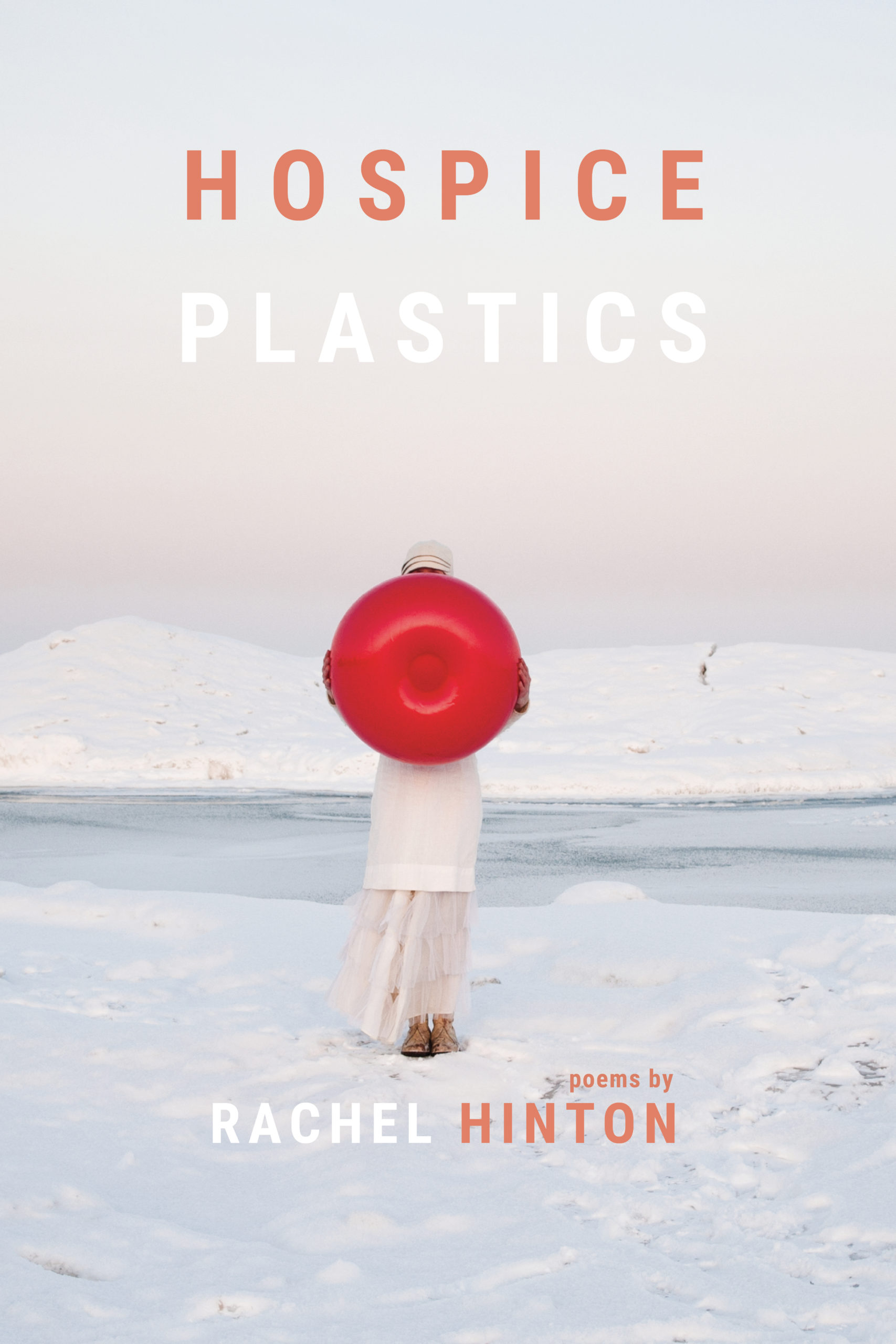Hospice Plastics
Publication: October 1, 2021
Pages: 86
Hospice Plastics—each of the title’s words denote two key thematic threads woven through the book. This somewhat autobiographical collection of poetry focuses on the illnesses and deaths of the poet’s parents during her teen years, focusing on palliative care and literal plastics: medical tools and supplies—artificial, grotesquely present, weirdly funny, sublimely comforting. Ultimately, Hospice Plastics is a deeply personal and profoundly affecting examination of the self in relation to those items, as well as in relation to themes of material consumption and waste.
*****
Hospice Plastics absolutely hums and it’s so powerful, every line of it, and the way the author uses language astounds and amazes me. —Emma Bolden
In this unabashedly candid and gorgeously intimate debut, Rachel Hinton‘s lyric choreography is thrillingly unpredictable at every turn. The poems of Hospice Plastics are bracing, funny, heartbreaking, always accountable to something beyond autobiographical memory, alert to their assembled materials. This is that rare collection that I’ve not been able to stop re-reading; in it I hear the sound of a consciousness making a language by which to un-hypnotize itself from commonplace assumptions. “When will I feel like I have been slapped with kisses?” asks Hinton. I answer, whenever I read these poems. —Mary Szybist
The poems in Hospice Plastics perform a kind of open-heart surgery on themselves. One “transcribes a muscle to make sure of it,” or “clamps open a muscle to make sure of it.” The poem is an instrument we use to explore the un-understandable. Mortal wounds teach us what matters. “Do you not see how necessary a World of Pains and troubles is,” Keats suggests, “to school an Intelligence and make it a soul?” In “Heliocentrism in Purple,” Hinton writes, “I wish to be the very thing that is the problem / that is dying, I wish to/ exit my wish and sneak back in again.” Difficulty, wishes, grief – and then something blossoms: “I left my parents near edges no edges,/ inside a flap of violet, a hem./ When I make faces, the violet makes faces too.” These are lucid, stubborn, ingenious, beautiful poems. —Jennifer Clarvoe
Rachel Hinton’s extraordinary Hospice Plastics is the deepest exploration and dive; it presents as a life-long cold-plunge into the mix of death and things. What could be more material than grief? The speaker in this collection lets us know she’s been at this with all her breath: before speech and spreadsheets, before knowing about cells in a body and cells in a document. Hinton explores with astonishing skill and vision, her immense capacity for genuine engagement with boundaries: line, image, picture, sentence, grammar, body, and memory. Hospice Plastics’ poetics is exceptional; what is the form of loss in form?
—Colette LaBouff
*****
Originally from Vermont, Rachel Hinton holds an MFA in poetry from the University of California, Irvine, and a BA from Kenyon College. Her poems have appeared in The Boiler, Cimarron Review, the Denver Quarterly, SOFTBLOW, the Tahoma Literary Review, and other journals.
Trade Paper, $15.00
ISBN: 978173301530409
Buy
